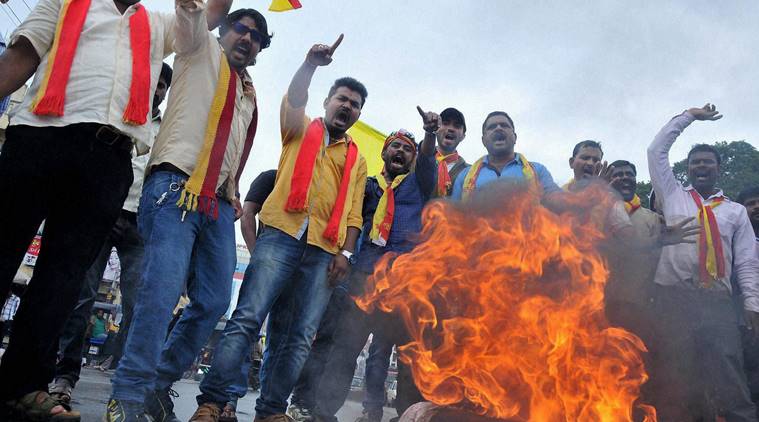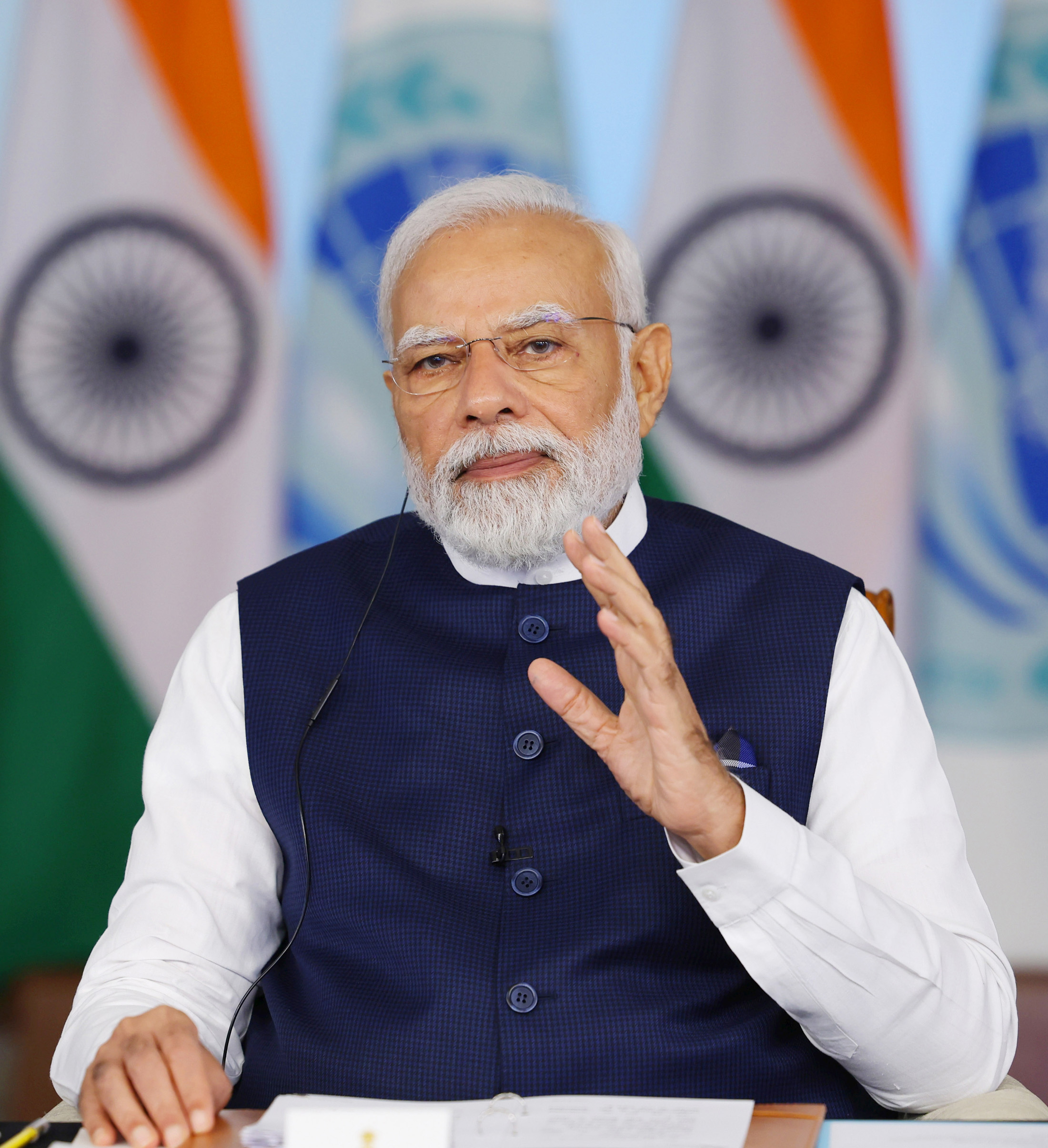Cauvery water fuels vile politics
Ravi Shanker Kapoor | September 14, 2016 11:24 pm

Chikmagalur: Activists from Karnataka burn the effigy of Tamil Nadu Chief Minister, J Jayalalitha after Supreme Court ordered to release Cauvery water at Chikmagalur on Monday. PTI Photo(PTI9_12_2016_000192A)
The ugly, violent turn that the Cauvery river water dispute has taken is indicative of the atrophy that afflicts the body-politic of our country. Men, provinces, and countries have fought over land and water since time immemorial. Even the dispute between Tamil Nadu and Karnataka is about 125 years old, but what is conspicuous is the viciousness and virulence that it has acquired in the last quarter of century—indubitable evidence of the rise of sentimentalism and sanctimoniousness, and the concomitant decline of reason and poise.
Politicians and administrations of the two states, and large sections of civil society thereof, allowed fringe groups fuel passions, arouse the basest instincts, and in general transmogrify citizens into a rabble. So, there are major outfits championing Kannadiga pride—Karnataka Rakshana Vedike, Jaya Karnataka, Kannada Okkoota, Kannada Sena. But smaller ones are also there.
Senior journalist T.S. Sudhir recently wrote for Huffington Post, “It is only ironic that in outsourcing city Bengaluru, the task to derail Bengaluru is outsourced by shady political operators to these roll-call outfits. Bengaluru today is run by these dons, whose groups have a track record of fomenting trouble at the drop of a coin.” The freelance trouble-makers include professional protestors, activists with a shady past, and sundry busybodies.
In Tamil Nadu too, the situation is no different. Fringe outfits like Naam Tamizhar Katchi and Tamizhaga Vazhvurimai Katchi caused a lot of disruptions, though violence and agitation were not of the scale as witnessed in Bengaluru. Biocon chief Kiran Mazumdar Shaw, who sarcastically tweeted that Bengaluru should be renamed “Bandh-luru,” faced the ire of activists.
Her anguish, and that of the business community and the man on the street, was genuine. A.M. Vikramaraja, president, Tamil Nadu Vanigar Sangankalin Peramaippu (the Federation of Tamil Nadu Traders’ Association), was quoted in the media saying that the stir by Kannada groups caused losses in the region of Rs 2,000 crore to Tamil traders and transporters. Commercial establishments were attacked and vehicles burnt.
Karnataka suffered even more—Rs 22,000-25,000 crore, according to an estimate by the business chamber Assocham. The intangible loss, mainly that to brand Bangalore, is incalculable. First there were floods, and now the dance macabre of tribalist politicking, mob manipulation, and rampant lawlessness have badly tarnished the image of the so-called Silicon Valley of India, which also hosts several Fortune 500 companies. The US government even issued an advisory to its citizens about the situation in Bangalore.
All this has, however, elicited little more than pro-forma responses from the leaders of the two states. Karnataka Chief Minister Siddaramiah said appealed to the people to remain calm. He also pledged to deal strictly with miscreants: “We have decided that we will impose law and order with an ‘iron hand’ so that there is no harm to the citizenry or to property.”
But, Mr. Chief Minister, why did you decide to impose law and order after the death of so many people and the loss worth thousands of crores? What stopped you from checking the miscreants when they were indulging in vandalism and violence?
The fact is that most of the outfits that orchestrated the orgy of violence enjoy political patronage of one kind or the other. When politicians and the organizations supported by them vociferously and sanctimoniously claim to support some cause, whether it is of reservation for some community or claims over some river, any other voice—especially the one espousing reason—is drowned in a cesspool of unctuousness and casuistry. Ad hominem attacks are hurled at anyone daring to challenge the cause, militancy, or methods of agitators.
This is what happened to Shaw, who later said in an open letter, “The last two days of outrage expressed against my innocuous tweet on Bangalore bandh has hurt me and pained me to the core. My tweet has been distorted and misinterpreted and used to hurl abuse and shame me, which is most unfair. I am shocked to see such negative vile being hurled at me from different quarters.”
It is nobody’s case that the distribution of Cauvery water is of inconsequential; it is important because it does affect the income of a large number of farmers in the states that receive the river water. Disputes have arisen in the past and will arise in the future, but the way out resolve them is not by taking recourse to sentimentalism, agitation, and disruption; the way out is resolution of issues in a civilized manner.
There have been many tribunals and court decisions. All of them don’t satisfy all parties all the time, but we have to take such adverse verdicts in our stride if we consider ourselves to be civilized.
Unfortunately, it is not just the politicians of Karnataka and Tamil Nadu who indulge in sentimentalism; the northern states of Punjab and Haryana are little better. Politicians here too refuse to defy the diktats of fanatical sub-nationalism. The Punjab units of the Bharatiya Janata Party and the Congress support the case of Punjab over dispute waters; their Haryana counterparts support the cause of Haryana.
Regionalism and folly defeat reason. All over India.






























